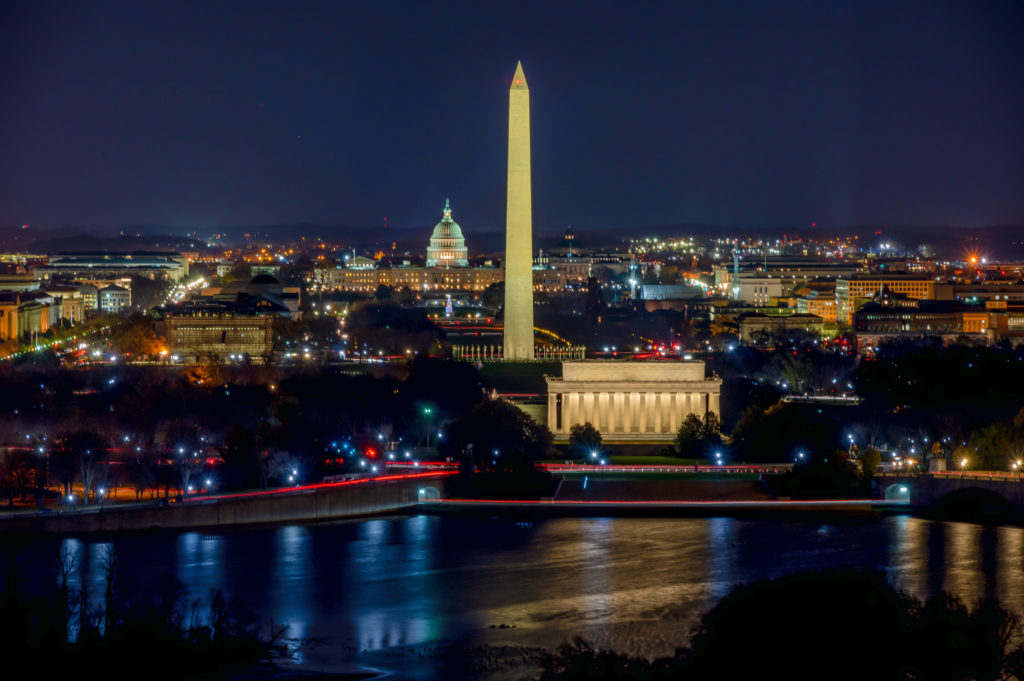
WASHINGTON (BP) – Religious freedom and human dignity again lead the Ethics & Religious Liberty Commission’s public policy priorities in 2022, the Southern Baptist entity announced Thursday (Jan. 13).
The ERLC released its annual Public Policy Agenda, which is organized in five categories: Religious liberty; sanctity of human life; family and marriage; justice; and international engagement.
The new agenda “focuses on the ways the ERLC represents and advocates for the policy interests of Southern Baptists before Congress, the courts and the administration,” said Chelsea Sobolik, the ERLC’s director of public policy.
“The second session of the 117th Congress opens as we’re still grappling with a global pandemic, supply chain issues and economic uncertainty,” she said in an ERLC news release. “But we will continue to defend the vulnerable, protect religious liberty, advance the cause of justice and work towards a day when abortion is unthinkable and unnecessary.”
The new agenda “is not an exhaustive blueprint, but a sketch of the core public policy priorities for the next year,” Sobolik and Brent Leatherwood, the ERLC’s acting president, wrote in the 16-page document.
On some of its priorities, “broad bipartisan consensus already” may exist, they wrote. These issues include criminal justice reform, payday lending regulation and a just solution for undocumented immigrants brought into the country as children, they said.
Other issues the ERLC has prioritized likely will be marked by far less agreement, they said. Among these divisive issues are the protection of unborn children and their mothers, heightened safeguards for conscience rights and support for at-risk religious minorities overseas, Leatherwood and Sobolik said.
The ERLC has “the opportunity to bear witness, to seek to persuade, and to build the consensus needed to make change” regardless of the popularity of an issue, they wrote.
As in the last session of Congress, the ERLC will face difficult challenges in reaching some of its policy goals. The Democratic Party – which supports abortion rights, as well as lesbian, gay, bisexual and transgender rights – controls both houses of Congress and the White House.
Based on history, however, the mid-term election in November likely will produce a change in the makeup of Congress, Leatherwood and Sobolik said.
The ERLC “has been through a season of transition …, but we have continued carrying out our ministry directive to serve the public policy interests of Southern Baptists,” they wrote. Russell Moore departed in June for a new role with Christianity Today magazine after eight years as the commission’s president.
Each of the agenda’s five categories opens with an excerpt from The Baptist Faith and Message, the SBC’s confessional statement.
The ERLC’s 2022 agenda consists of 41 items, including:
- Defense of religious liberty during the COVID-19 pandemic. The ERLC “will continue to advocate that the government treat churches the same as similar activities, businesses, and spaces, while recognizing that First Amendment protections are not shed by churches during a health emergency,” Leatherwood and Sobolik wrote. The ERLC also recognizes “God has given the state the authority to manage activities, businesses, and spaces during a national health crisis,” they said.
- Assistance for states if the Supreme Court overrules the 1973 Roe v. Wade decision that legalized abortion nationwide. The high court is expected to rule by this summer in Dobbs v. Jackson Women’s Health Organization, a case regarding Mississippi’s ban on abortions after 15 weeks’ gestation. The ERLC and others have urged the justices to uphold the law and reverse Roe. If Roe is overturned, abortion policy would return to the states.
- Opposition to the Equality Act, legislation that would add “sexual orientation” and “gender identity” to the classifications protected in federal civil rights law. The proposal “represents the most significant threat to religious liberty ever considered” by Congress, Leatherwood and Sobolik wrote. Among its problems, the bill would “ultimately steamroll the consciences of millions of Americans,” they said. The House of Representatives passed the measure in 2021, but the Senate has not acted on it.
- Protection of the Hyde Amendment and other pro-life riders in spending bills. Congress must pass the Hyde Amendment, which has barred Medicaid funding of abortion since 1976, and similar prohibitions each year.
- Opposition to the transgender mandate. Federal agencies have interpreted federal law to require medical professionals to perform or provide insurance for gender-transition procedures. The ERLC “will work to oppose this harmful mandate that violates the consciences and religious liberty” of health-care providers, according to the agenda.
- Promotion of policies designed to encourage adoption and foster care and to protect faith-based child welfare agencies from government discrimination. These include working “to ensure that intercountry adoption remains a viable option for families and vulnerable children around the world,” Leatherwood and Sobolik wrote.
- Support of a permanent legislative solution for Dreamers, undocumented immigrants brought into the United States as children and with no permanent legal status.
- Advocacy for rebuilding a strong refugee resettlement program to aid people fleeing religious persecution or other repression in their countries.
- Championing international religious liberty as a priority in American foreign policy and a potent Office of International Religious Freedom at the State Department.

















